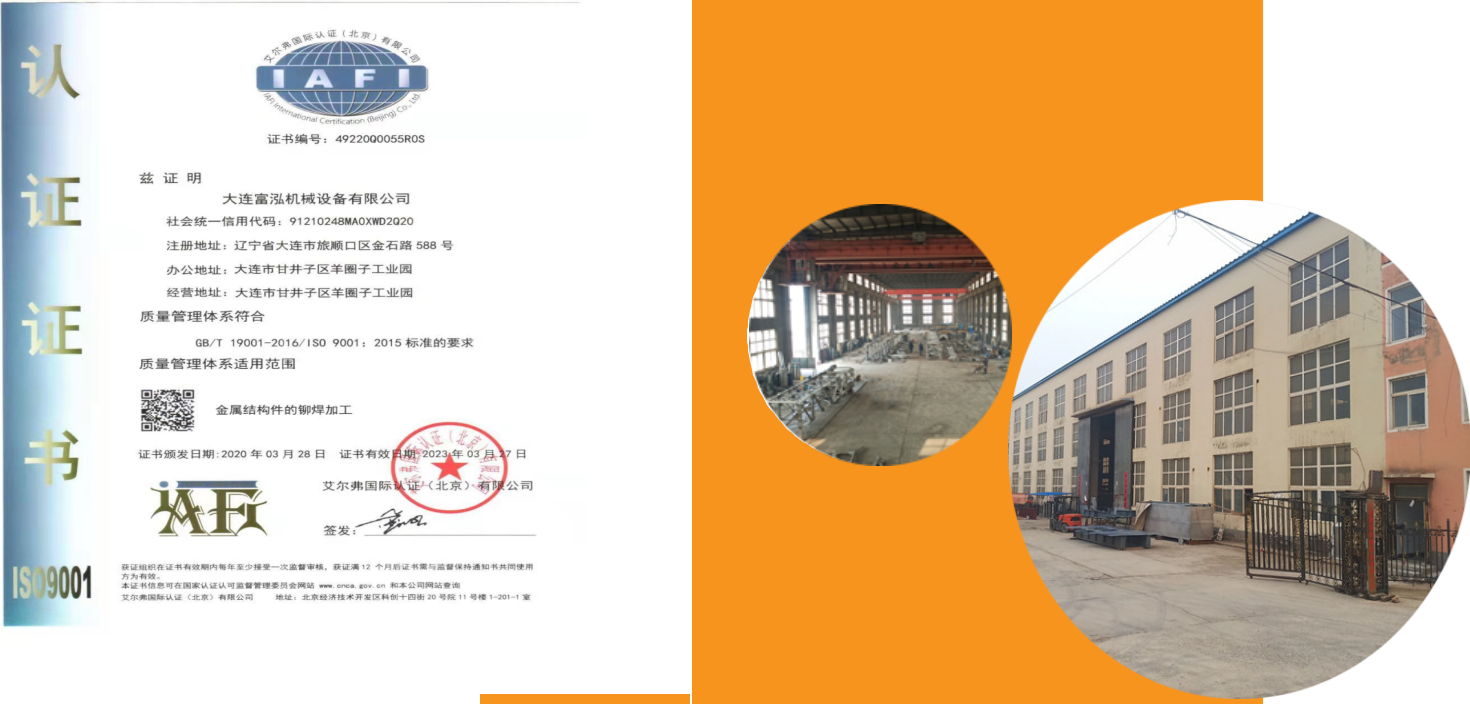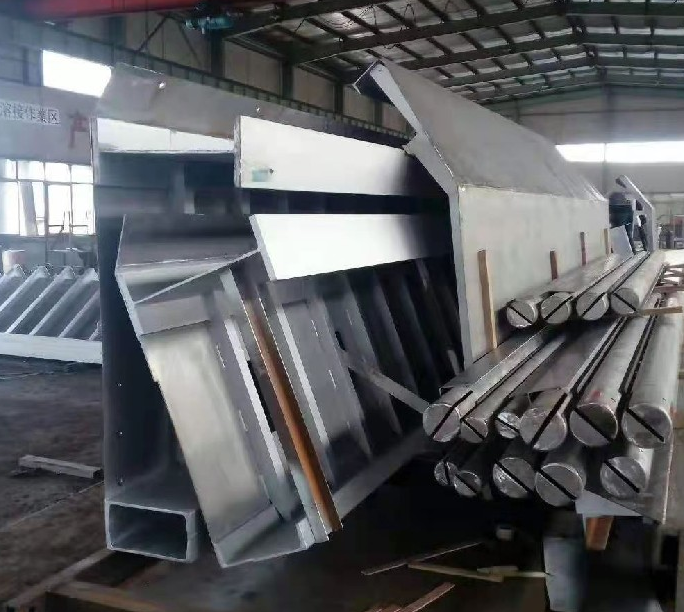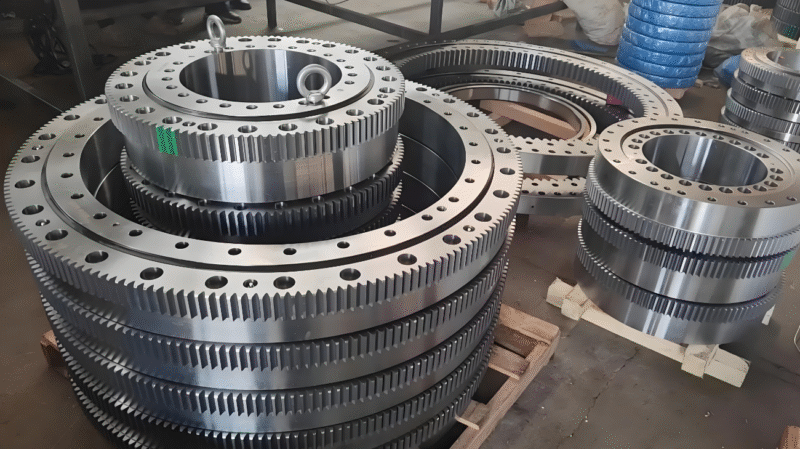Types and Manufacturing Examples of Autoclaves
Types and Manufacturing Examples of Pressure Vessels: Analysis of Industrial Applications Included
Outline of Pressure Vessels
Consolidation tanks are widely used in petrochemical, energy, power, food, pharmaceutical and many other fields, and are important equipment in modern industries. The specially designed airtight containers are designed to withstand a certain amount of pressure from the inside or outside, so that air, liquids, and other media can be safely stored and retrieved. The development of industrial technology is accompanied by a rich variety of pressure vessels, and the manufacturing process is well rehearsed.
Main Categories of Pressure Vessels
Design Consolidation
The pressure vessel is classified by the design pressure:
Low pressure vessel 0.1MPa≦P<1.6MPa
Medium pressure vessel 1.6MPa≦P<10MPa
High pressure vessel 10MPa≦P<100MPa
Ultra High Pressure Vessel P≧100MPa
Consolidation level is different, the design criteria and safety requirements are different, the consolidation level is high, and the material characteristics and manufacturing process are critical.
Classification of Prospectus Usage
Reaction autoclaves, reaction kettles, recombination kettles, etc., are used for physical and chemical reactions.
Heat exchanger Heat exchanger for pressure vessels, coolers and other media.
Media separation and purification by separating pressure vessels, such as a seperator, a filter, and so on.
For storage of gas and liquid in pressure vessels such as gas tanks and spherical tanks.
Distinctions in Construction Forms
![图片[1]-压力容器的种类和制造案例(压力容器的主要分类) - cndlfh.com-cndlfh.com](https://cndlfh.com/wp-content/uploads/2025/05/5-1.png)
Spherical containers, for example, liquefied petroleum gas (LPG) storage tanks are complex to manufacture with uniform stress.
Cylindrical packaging is the most common shape, and it is easy to manufacture and has a large pressure capacity.
The special features of the Convenience Store and the Pocket PC are compatible with a number of simples and hurdles.
Classification of Manufacturing Materials
Metal pressure vessels:.
Carbon Steel Packaging: Widely Used in Low-Cost Applications
Stainless Steel Containers: Rot Resistant, Food and Pharmaceutical Industries
Alloy steel containers: High strength, high temperature and pressure resistance.
Non-metallic pressure vessels:.
Plastic containers: Rot-resistant and edible, limited in pressure capacity.
コンポジッット・コンテナ:Special daytime lightweight with high strengthコンテナ
Typical Case Structures for Pressure Vessel Manufacturing
Causes 1: Large-scale liquefied natural gas (LNG) storage tanks
Projekt background:.
It is necessary to construct a 160,000 cu.m. LNG storage tank with a capacity of 3,000 cu.m. in order to receive and store imported liquefied natural gas in the coastal LNG receiving terminal.
Essentials for the manufacturing industry:::
9% nickel steel is used for the inner groove material to ensure the ultra-low temperature performance at -162℃.
The outer tank is constructed of a pristine, concrete structure and is supplied with a secondary gasket.
Application of auto-welding technology and completion of a long process of welding system on several kilometres.
Structures of Low Temperature Thermal Layer by Palladium Filling
technical problems ::.
![图片[2]-压力容器的种类和制造案例(压力容器的主要分类) - cndlfh.com-cndlfh.com](https://cndlfh.com/wp-content/uploads/2025/05/10-1.png)
Control of Material Properties at Ultra-low Temperatures
Guaranteeing the accuracy of dimensioning of large structures
![图片[3]-压力容器的种类和制造案例(压力容器的主要分类) - cndlfh.com-cndlfh.com](https://cndlfh.com/wp-content/uploads/2025/05/11-1.png)
Co-construction of Multi-storey Structures
Cases II: Petroleum Hydration Reactor
Projekt background:.
The new hydration decomposer at the oil refinery is a HDRI unit with a diameter of 4.2 metres, a length of 28 metres, and a weight of 1,200 tonnes, which is necessary for the production of the product.
Manufacturing engineering:.
2.25Cr-1Mo-0.25V Water-resistant Vegetable Steel Forging Division
Multi-layer Laminating Technology for 300mm thick meat
Stainless steel coating on the inner side.
All-in-one heat treatment to remove residual stresses from dissolution
Quality management::
![图片[4]-压力容器的种类和制造案例(压力容器的主要分类) - cndlfh.com-cndlfh.com](https://cndlfh.com/wp-content/uploads/2025/05/12-1.png)
100% Radiological Testing (RT) and Ultrasonic Testing (UT)
Standard hardness test and water cut-off test.
Strength of the hydraulic unit of the failsafe is confirmed.
Case 3: Food Stainless Steel Fermenter
Applicable fields:.
Important equipment for the expansion programme of a renowned business company.
Manufacturing characteristics:.
Food and contact safe, ultra-low carbon stainless steel 316L.
![图片[5]-压力容器的种类和制造案例(压力容器的主要分类) - cndlfh.com-cndlfh.com](https://cndlfh.com/wp-content/uploads/2025/05/13-1-800x420.png)
Internal surface electrolytic grinding Ra≤0.4μm
CIP Cleaning System Integrated Design
Automatic Temperature Control System with 0.5℃ Accuracy
Special elements:::
Thorough design of a customised version of the Client.
Prevention of microbial reproduction, and smooth migration of all parts of the joints.
FDA and EHEDG Health Benchmarks Completed!
Production of Pressure Vessels and Cylinders
Material Selection and Collectivity
Material Performance Elements:.
FUJITSU TEN TEN LIMITED
Good Solubility Properties
Food Tolerance for Operating Environments
Consider low temperature or high temperature characteristics when necessary.
General materials::
Q345R: Steel for general pressure vessels
SA516 Gr.70:Standard low to medium pressure container steel of América
S30408: Austenitic Stainless Steel
SA387 Gr11 Cl2: High Temperature Clomoribundum Steel
Dissolving Proximity Control
Selection of joining method:::
Submachine-Arc Welding (SAW): Reinforcement System for Thick Plates
SMAW: On-site Setup
TIG Welding (GTAW): Stainless Steel Sheet
Quality Management Portfolio:.
Dissolver qualification management
Welding Prospectus Qualification (WPQ)
Preheating and Interlayer Temperature Control before Welding
Post Welding Heat Treatment (PWHT)
Non-Destructive Inspection Technology
X-ray Fluoroscopy (RT) for Volume Disturbance Detection
Ultrasonic Testing (UT) of Eliabeth's Underdetermination
Magnetic Particle Inspection (MT) Surface Clark Inspection
Surface Inspection of Penetrating Tester (PT) Non-Magnetic Materials
Consolidation and Leakage
Normally, water is used as the hydraulic unit, and the test pressure is 1.25 to 1.5 times the design pressure.
Special protection is necessary in case of air pressure test.
Airtightness Tension, Consolidation, Design Consolidation, etc.
Development Trends of Pressure Vessel Industry
Upwardly mobile in the design of the Maxib & Mojibar, with the ability of each of theユニット.
Reduced workload in the field
インテリジェント・マニュファクチャリングデジタルツイン, IoT technology ライフサイクル management への応用
Increased Use of High Performance Composites and Special Alloys for New Material Applications
Green low emission design, the optimisation of energy efficiency is an important indicator.
Internationalisation of specifications ASME, PED and other international specifications are widely applied.
Portfolios for Safe Use of Pressure Vessels
Periodic Inspection in accordance with TSG 21-2016 and other regulations
Prohibition of over-temperature, over-pressure and over-loading of the operating specification
Construction of the Carrion Monitory Carrion Speed Monitory System.
Emergency Preparedness Emergency Planning and Regular Training
Human resource development oplet is necessary for permission.
Conclusion
There is a wide variety of specialised machines with complex manufacturing processes for hydraulic vessels. In the case of large-scale energy storage tanks and sophisticated food machines, the requirements for pressure vessels are different from those for large-scale applications. With the advancement of material science and manufacturing technology, the development of pressure vessels has been in the direction of safety, efficiency, and superiority. Understanding the characteristics and manufacturing bases of each type of pressure vessel, we will provide technical references to manufacturing companies to help them choose and regulate the use of pressure vessels in a reasonable manner. In the future, with the advancement of the goal of "Daburcabon", the hydraulic pressure vessel will be an important service for the transformation of energy sources and the enhancement of industry.
Hotells Reaktor










No comments